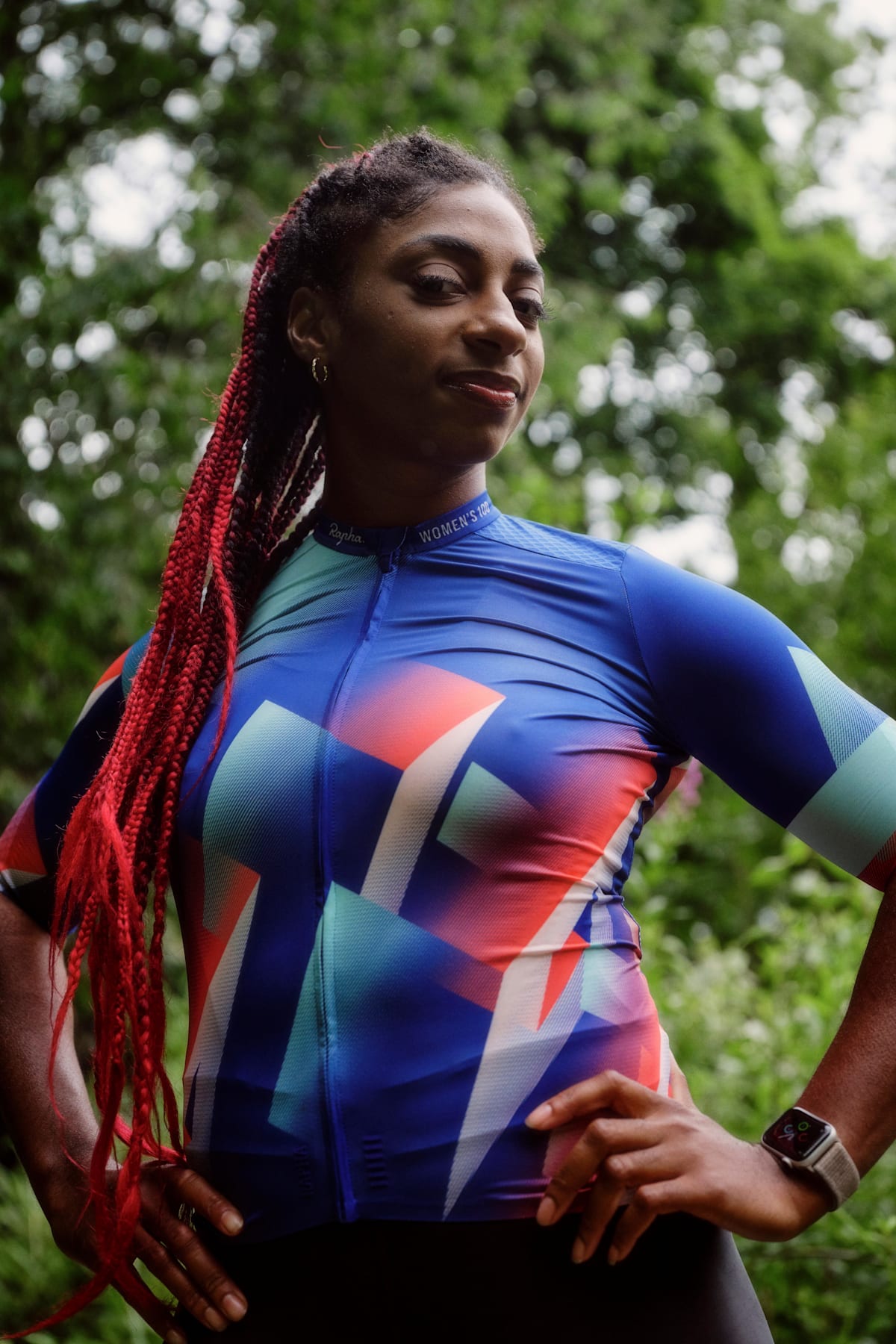
Kadeena Cox
Born in Leeds and now living in Manchester, Kadeena is a British parasport athlete with a full sweep of Paralympic medals from Rio 2016, as well as three world titles to her name.
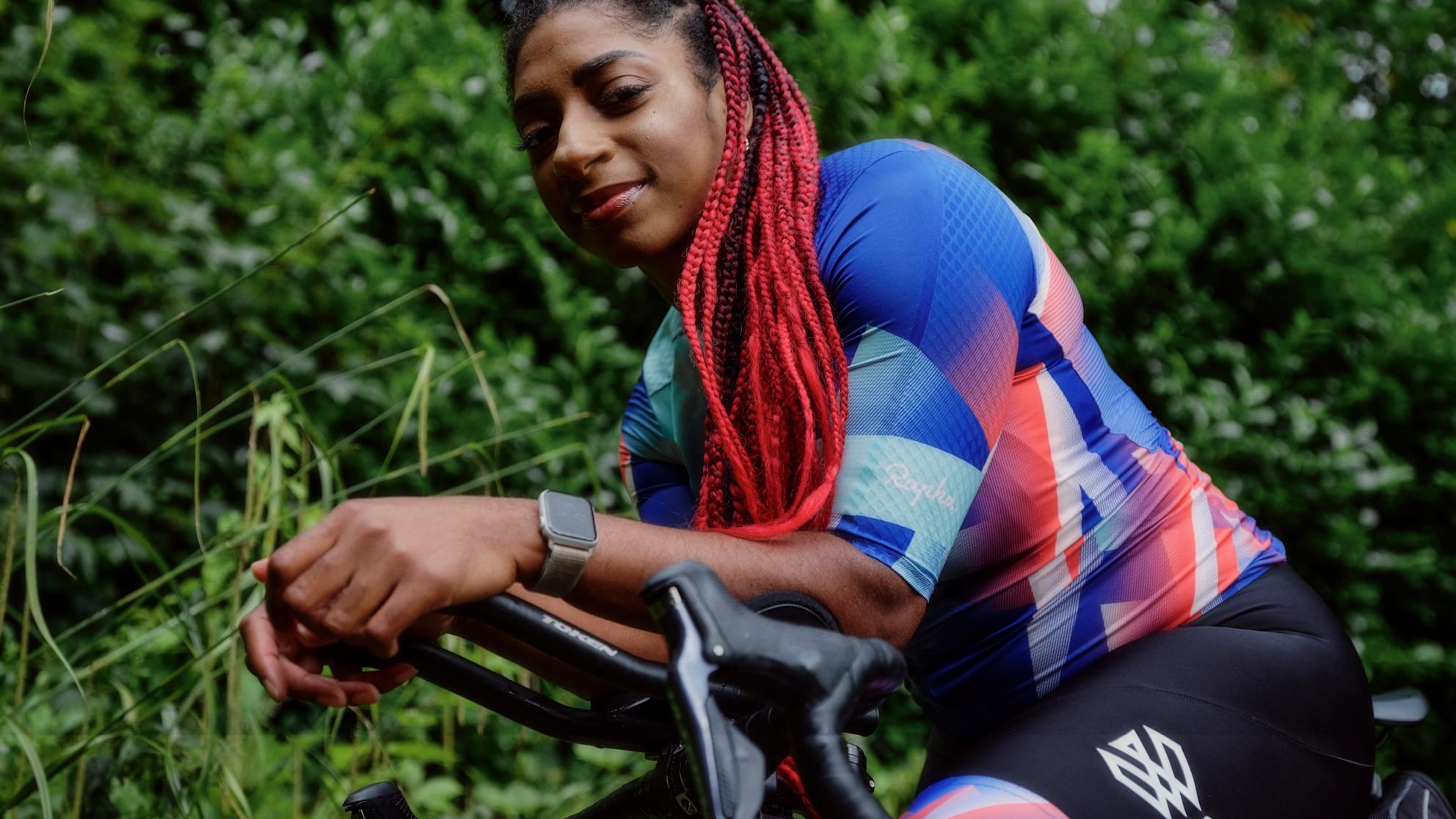
In the fourth and final feature in the Invisible Peloton series, Emily Chappell talks grass roots and gold medals with parasport athlete, world title winner and Rio 2016 gold medallist Kadeena Cox.

Born in Leeds and now living in Manchester, Kadeena is a British parasport athlete with a full sweep of Paralympic medals from Rio 2016, as well as three world titles to her name.
Cycling for me was just a new challenge. I was a runner before I got ill, and I couldn’t run much without falling over once I got diagnosed with multiple sclerosis. So I spent a lot of time on a Wattbike. Someone pointed out that my power was pretty decent, so I got into track cycling that way.
And then, because it was something that was so unknown to me before having MS, there was nothing to compare it to. With athletics, I’d run for 14 years before I got ill, so there’s always that comparison, whereas cycling was a new challenge, something totally fresh.
I love the feeling of going fast, and I can’t go as fast on my legs as I can on my bike. Just that freedom, to be able to get out onto the road, to learn new skills. I get a lot of enjoyment out of learning.
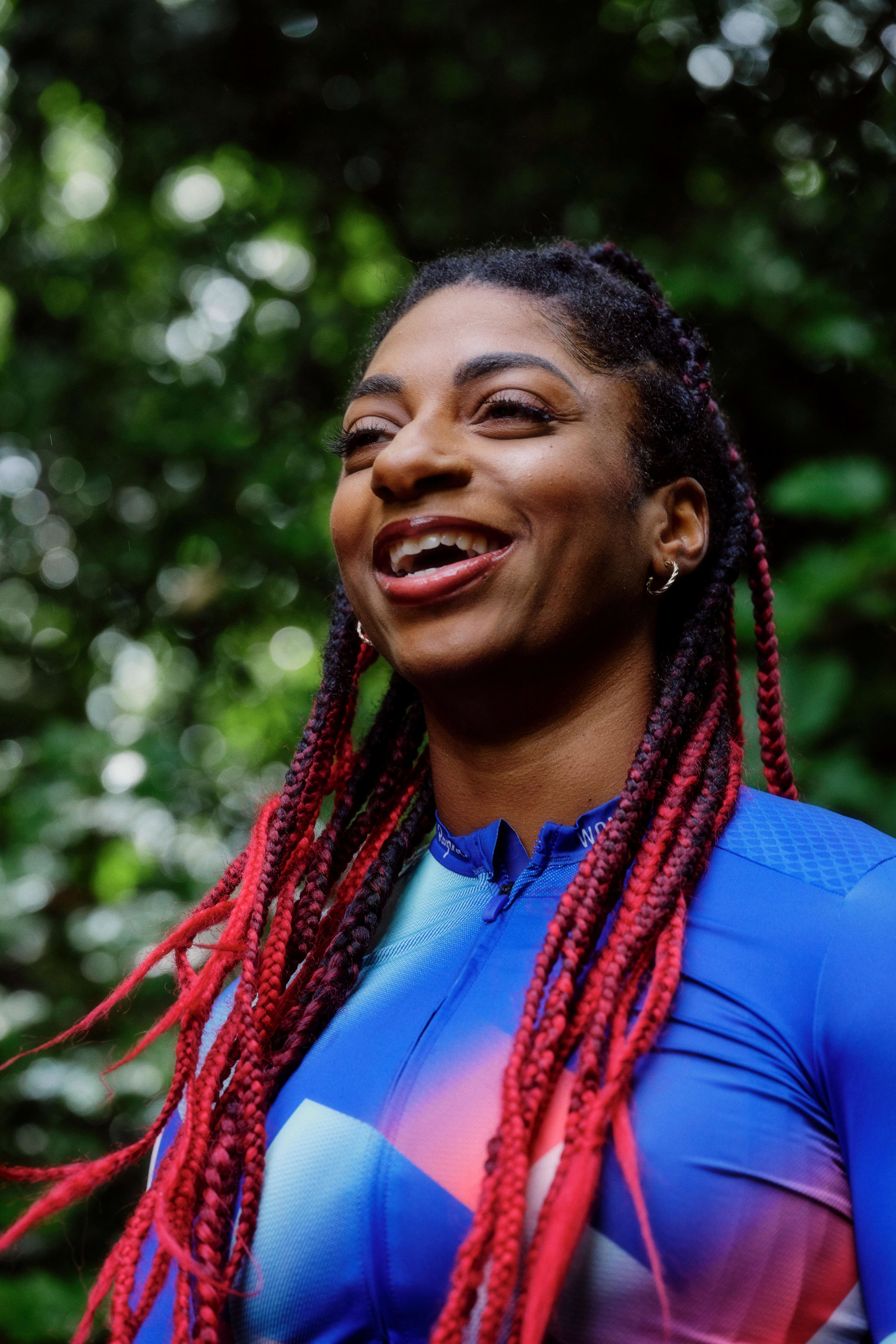
The majority of the time it’s been really positive. I came in as this pretty impaired athlete, who happened to have the power of someone who was a runner beforehand. I didn’t know how to ride a bike, but on paper I could have been an amazing bike rider. So all the people who know stuff about cycling were just like – ok, we’re going to do something with this girl.
The only real hurdles I’ve had were with disability classifications being changed, which impacted the events I could do in Rio. I started cycling in summer 2015, and my illness hadn’t plateaued out at that point, so by the time I got round to my first Worlds in 2016, I was probably more able to deal with my impairment than I was when they first saw me, so it meant my classification changed. But with it being in a games year, it just wasn’t what I needed.
Apart from that it’s all been pretty plain sailing. I’ve always just enjoyed cycling and learning about my bike, and it’s never been bad at all. But I think that’s because I luckily came in at the top, and have managed to stay there.
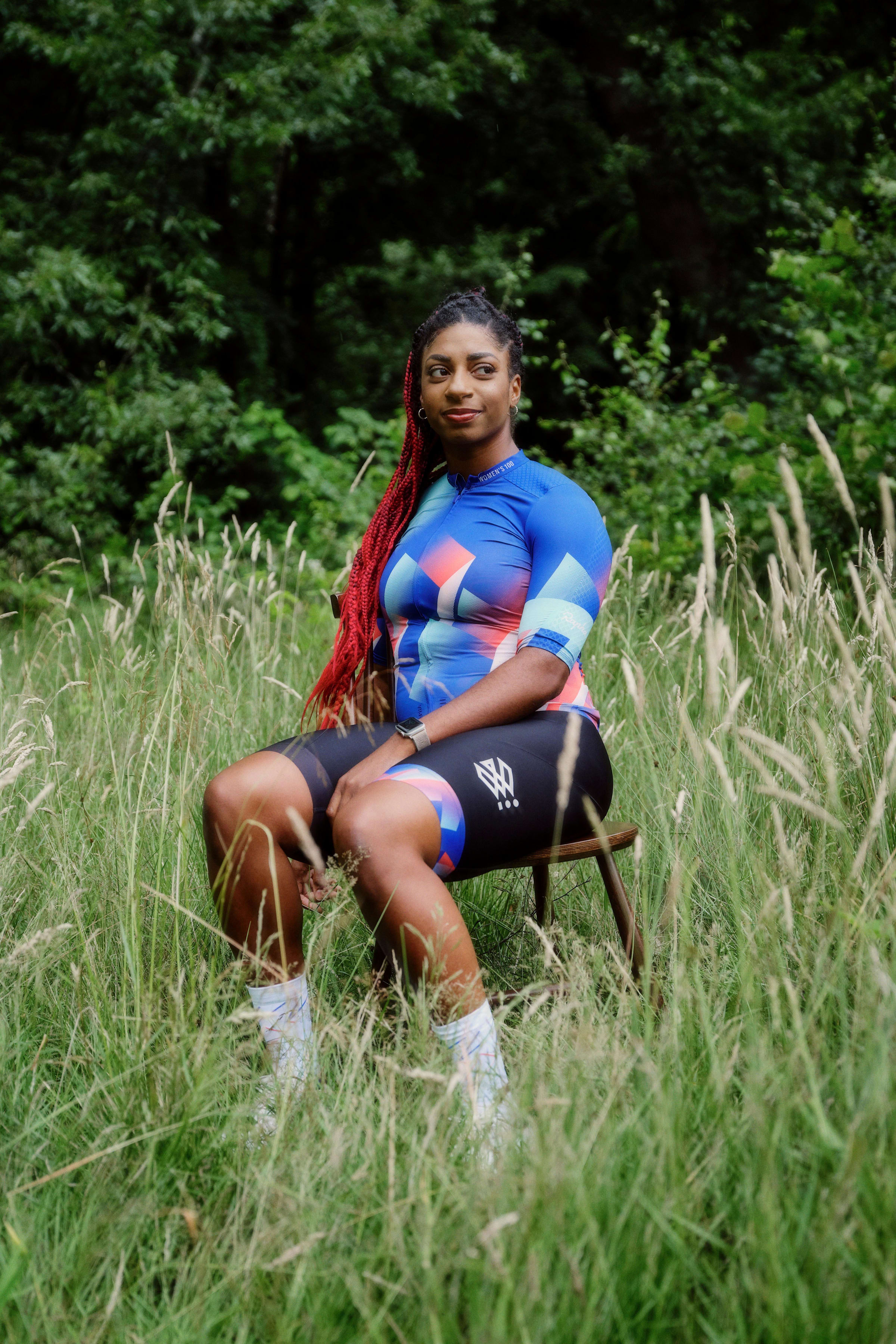
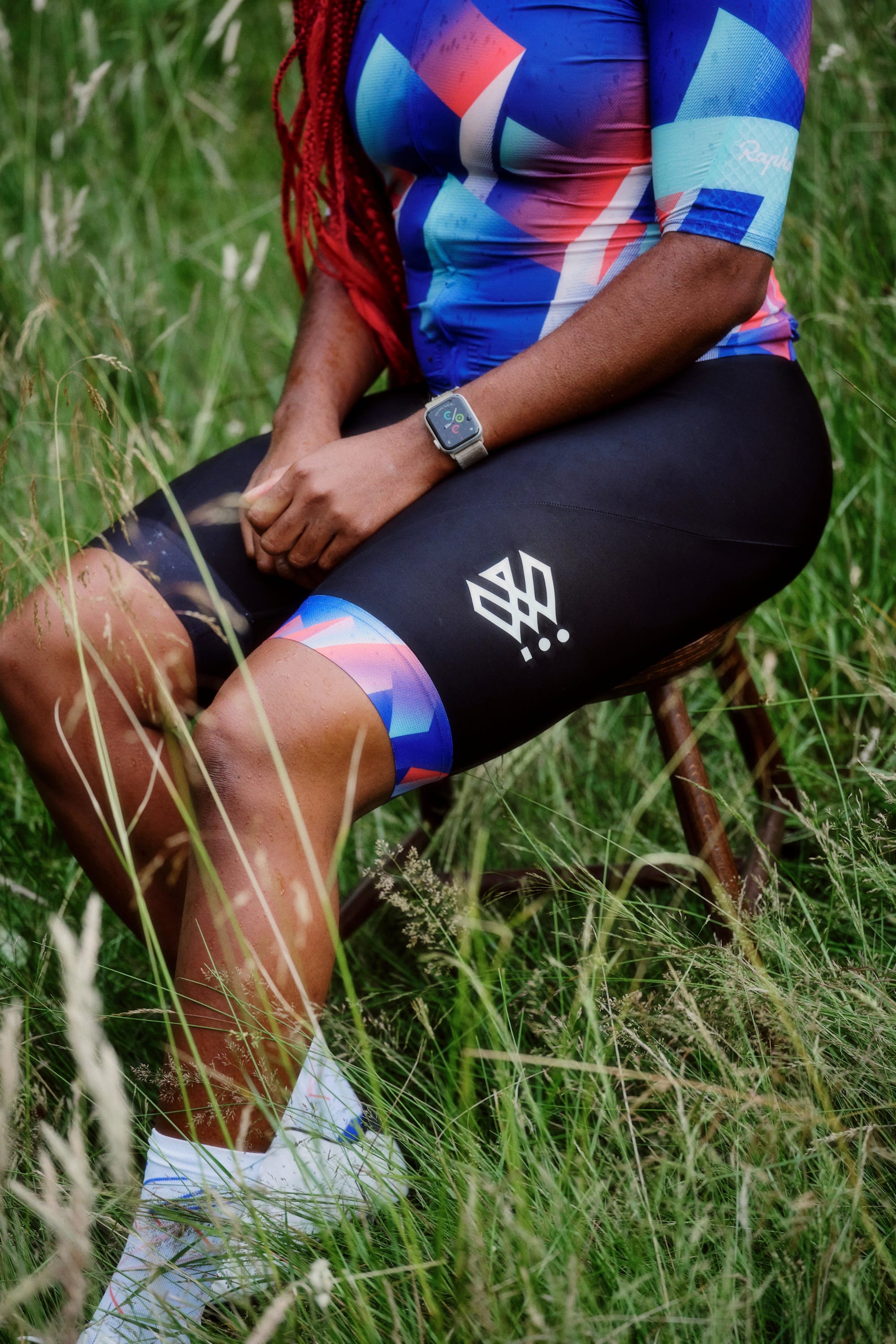
My gold medal at Rio was obviously amazing, and I went so much quicker – two-and-a-bit seconds faster than what I’d done at Worlds, a couple of months previously. So I’d stepped up massively, and I was super impressed with how fast I’d managed to go.
But in terms of achievements, I’d say being able to ride at the top of the track. I’m scared of heights. I had some time out after the games, and when I came back one of the other girls – Shanaze Reade – decided that she was going to make it her mission for me to be able to ride at the top of the track. I spent a lot of time just following her, just going up and down the track, and hovering below her, and she’d be going ‘come up, stay up’. It took me a real long time to feel confident, and it’s probably only in the last few years that I’ve been able to ride up there by myself.
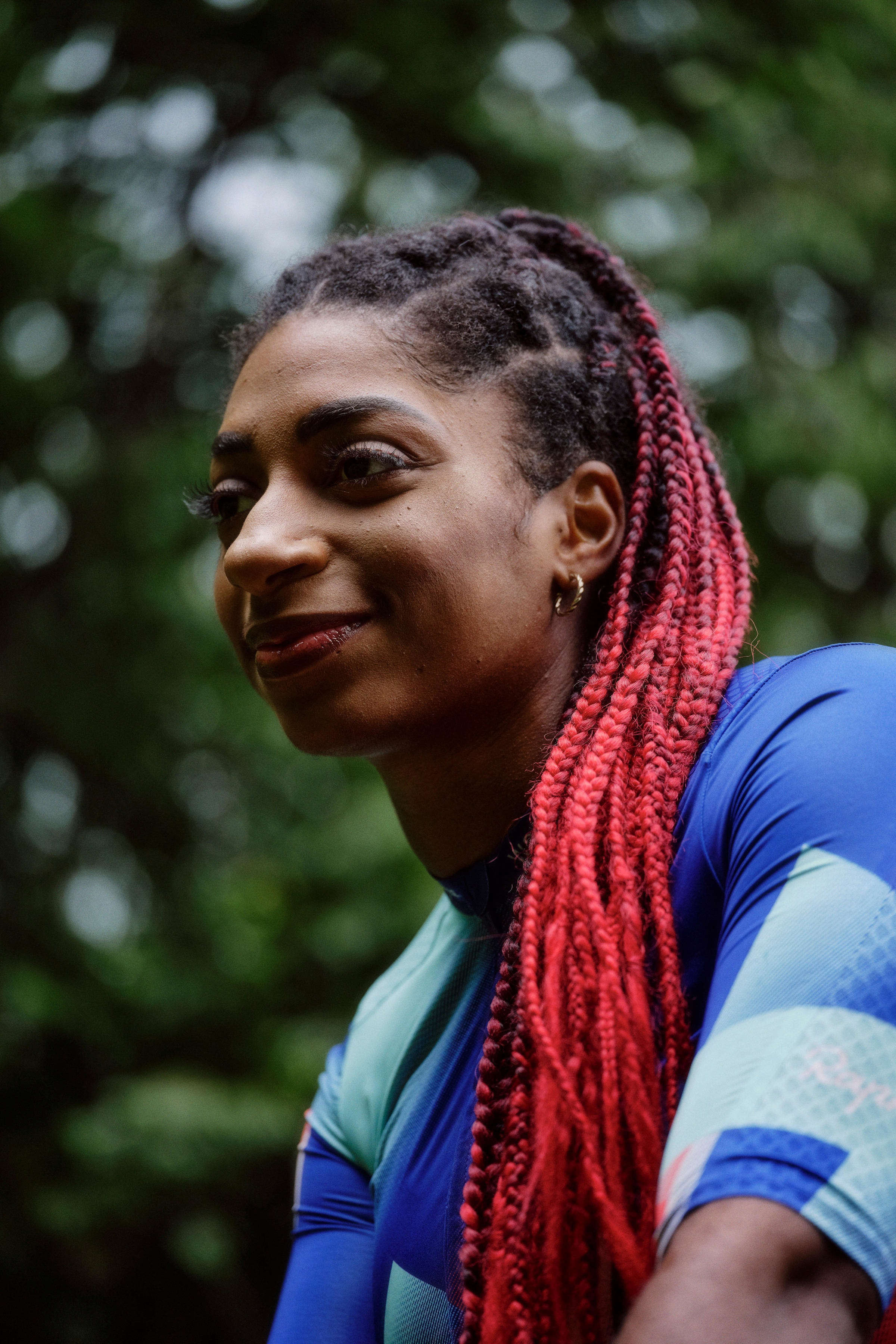
I’m a real goal-setting person. So it was ‘be able to stay up in the straights’, ‘be able to be halfway up in the corners’, and just keep building it up. A lot of the Olympic riders were happy to help me out. Shanaze taught me how to sort out my chain, and change my gears. And one of the tandem pilots, Helen Scott, she’d come up the track with me. It’s easier to follow a wheel, I find, than it is to think of staying up there on my own.
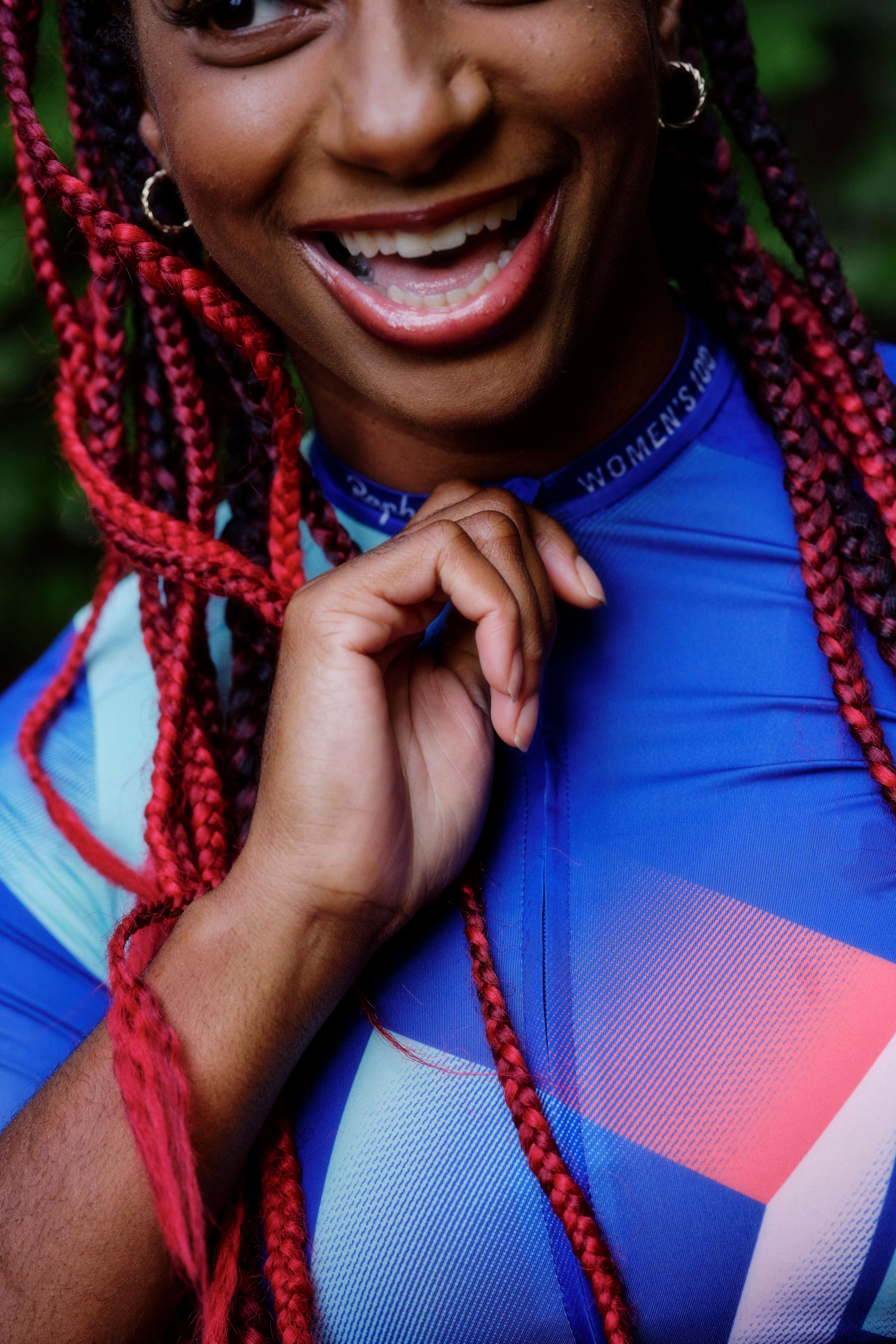
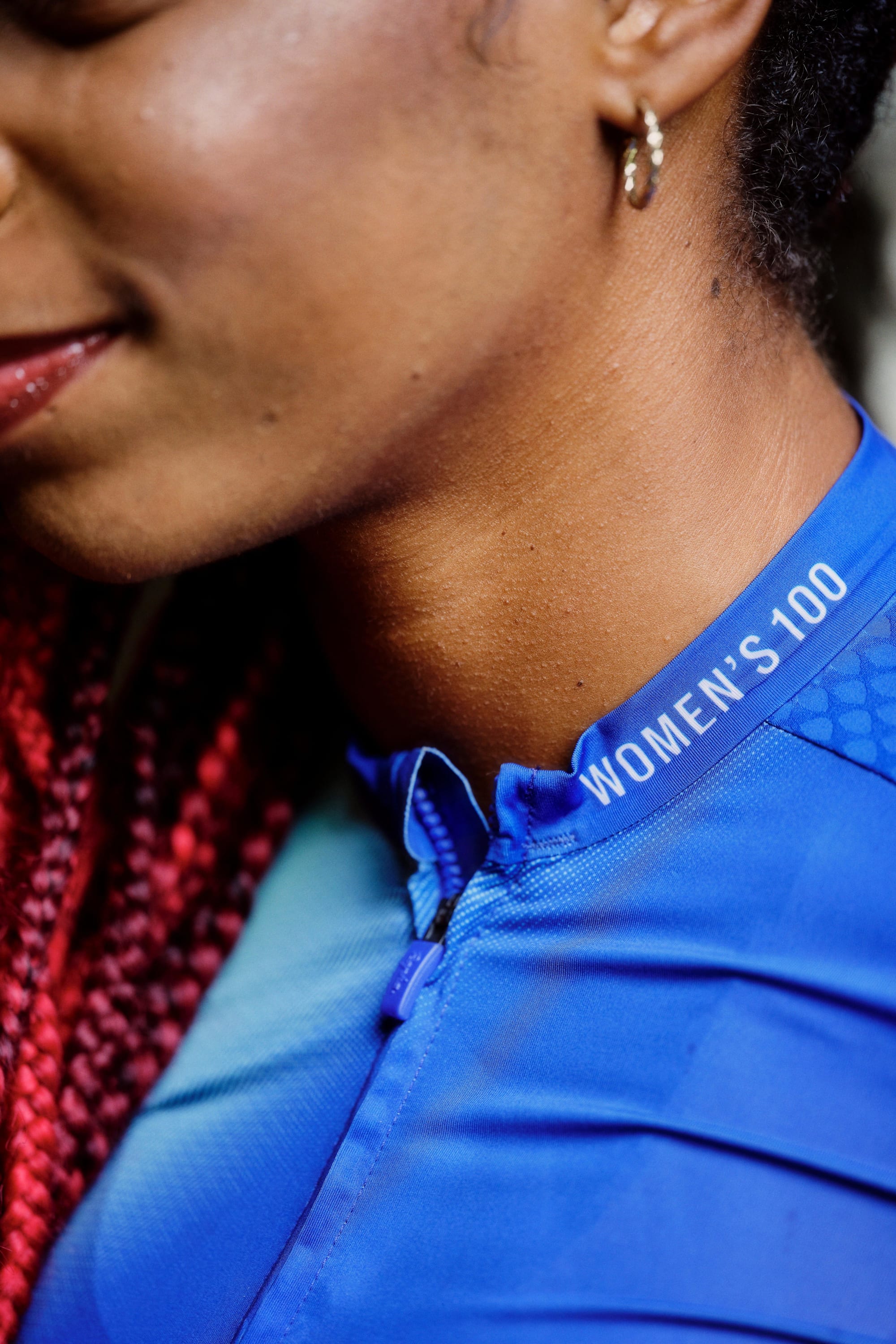
My little sister. She’s only twelve, and she is not sporty. Well, she plays rugby at school, and she’s just started playing hockey. But as soon as she starts sweating, she hates it. I’m really trying to be a good role model for her and get her into things. And seeing her doing a bit more really pushes me. Because she watches me, to get encouragement. I’ve got a load of siblings, but because she’s the baby, I kind of take her under my wing.
I also have Helen Scott and Sophie Thornhill, who managed to bounce back to become world champions after Sophie had hip surgery.
Vic Williamson came back after a horrendous crash where she broke her pelvis in several places. Seeing her get back to the top was an amazing achievement.
Shanaze Reade has always been someone I look up to. She’s been World Champion across BMX and track cycling, but has this novice-like approach, always trying to learn and get feedback, which is a breath of fresh air. For someone so talented, she’s not arrogant, and always pushing to be better.
Hannah Dines is a cracking trike rider, who I learned a lot from on my first trips with the team. Like me, she’s come from athletics, and has made GB squads for both sports.
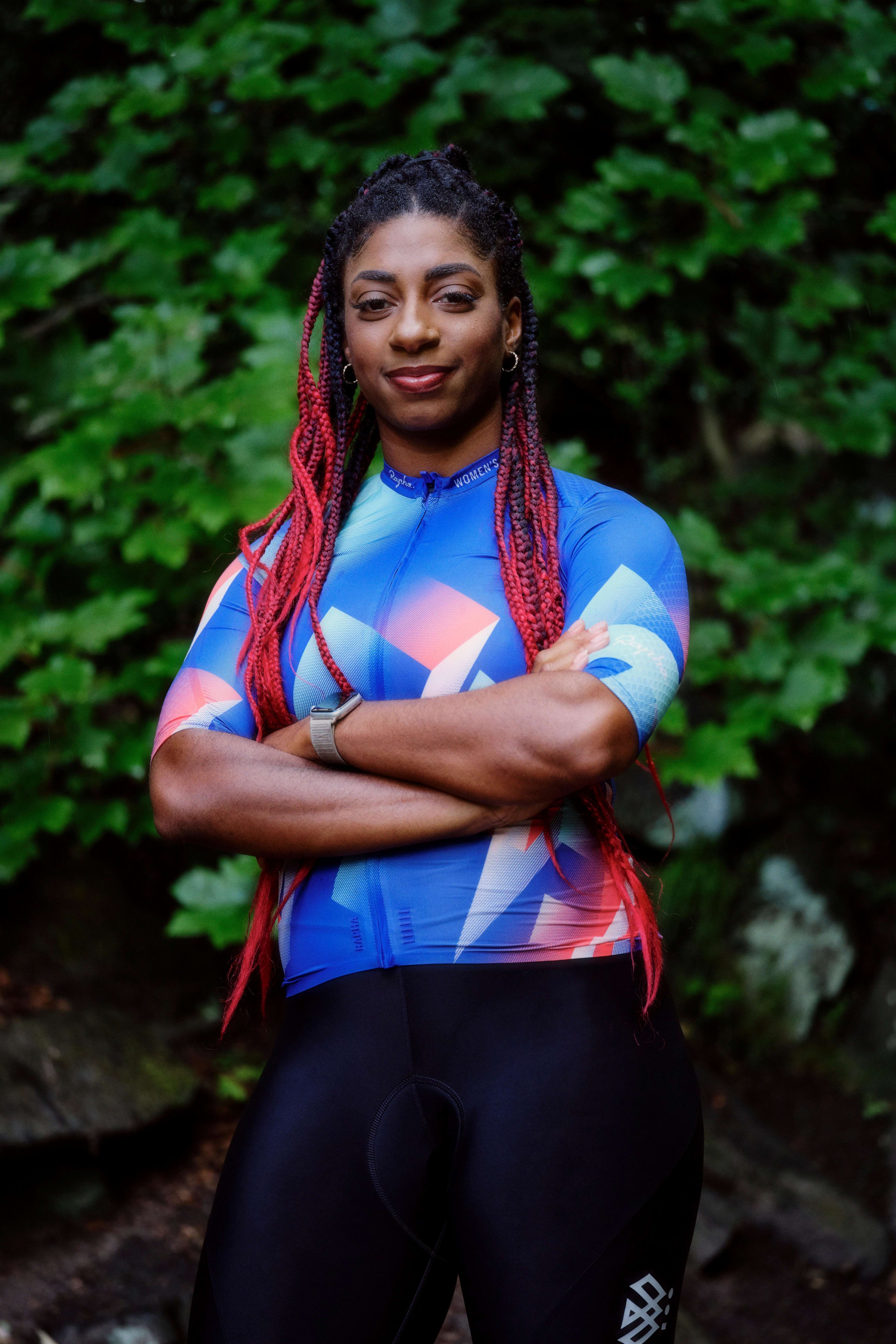
The hard thing is that I have the comparison between athletics and cycling. I’ve done athletics since I was 13, and I’m able to coach, and I know a lot about it. I still feel like a novice on a bike. And everyone thinks ‘but you’re a champion, you’ve been the rider of the year, you’ve got your rainbow jerseys’. But I don’t have the same knowledge and understanding. It took me ages to learn how to change my gears on my track bike.
But I think cycling’s only a challenge because I find athletics so easy, because it’s just what I’ve always done. If I want to escape then I will just go out on my bike, but on a really nice course, on a nice day. One of the joys of having two sports is that when one’s getting a bit overwhelming, I can always go to the other.
Sign up to the challenge on Strava and shop the collection.